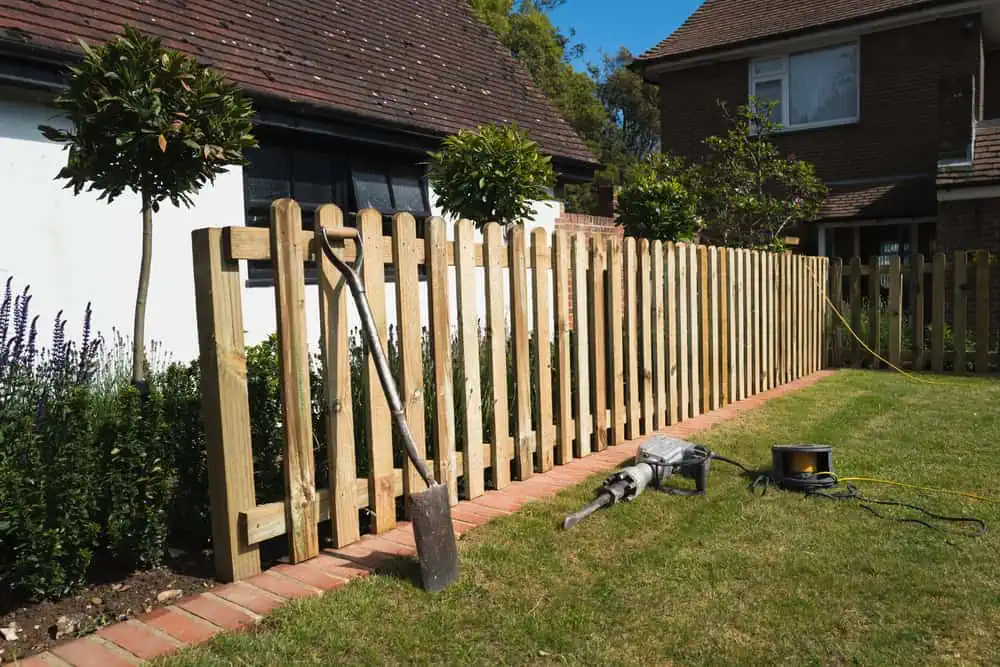Preparing your yard for fence installation in Jacksonville means more than clearing a line and digging holes.
Share:

Researching local zoning laws alongside Homeowners Association (HOA) guidelines is vital before picking up a shovel. Jacksonville has several set rules for properties that dictate the boundary, height, and materials used for fences. Not adhering to these rules can be expensive both in penalties and in the removal of the fence you worked hard for.
The last thing you want is to end up in conflicts with relatives over what are suppose to be family friendly boundaries. Check your property lines against your neighbors and do the polite thing of sharing your intentions ahead of time. If boundaries are not legally documented, think about getting an official property survey, as discussing them without a legal framework can sometimes invite trouble.
For most Jacksonville residents, permits are mandatory for fence installation. To obtain permits, you may need to contact the city’s planning department or look up the necessary documents online. If you live in an HOA, feel free to inquire whether you need to obtain prior approval for your work. Many dependable fence contractors, like those in Jacksonville, will take care of the permits for you.
The most expensive mistake you can make is to start digging anything without verifying the location of utility lines. If you intend to install any fences, make sure to contact Jacksonville Electric Authority (JEA) or call 811 for Any Marked Underground Utilities. Also remember not to dig around the marked lines as this could lead to service suspensions, accidents, and unneeded repairs.
Walk around the full length of the proposed fence and ensure that you remove any boulders or fences that tend to be an obstruction to the installation of the fence. It is best that you make advance arrangements. Preparation saves you and your contractor a lot of cash, and time.
If there are tree branches or roots that overlap onto your fence some trimming will be needed. In Jacksonville, where there is fast growing greenery, the landscaping, alongside the security the fence is meant to provide, will to some extent influence the lasting impacts of the fence.
Consider adding stabilizers like gravel or cement to increase the soil’s strength. This will enhance the soil’s durability and make it more reliable in the long term.
Water logging is an issue that needs to be resolved. Additionally, excess moisture weakens fence posts and increases overall maintenance undertakings. In Jacksonville’s rainy seasons, avoiding this issue is crucial.
It is critical to inform citizens about your intended plan as building fences may influence neighboring properties. This is courteous and helpful to inform neighbors of the height, material, and exact placement of the fence.
If the fence sits on a boundary that is shared, it is ideal to come to an agreement on the design and the responsibilities of maintaining it. Discussing these matters prior to the installation resolves many downsides.
Considering Jacksonville’s dual high maintenance, humid air, heavy rains, and coastal salt air, it is important to make an informed decision on the material used in constructing the fence to ensure long term survival. Fences made of vinyl are recommended.
Are shielded from damages posed by insects, hurricanes, and extreme shifts in temperature. Even better, they require little to no maintenance – making them an ideal fence for Florida. As an additional benefit, they also improve a home’s reserves.
The elegant and functional aluminum fences do not rust and are very durable, making them ideal for homeowners in Jacksonville.
Cedar fences, which are moisture and rot resistant, have high durability. Regular sealing also enhances their lifespan, further making them ideal for humid regions. Discuss materials with a local contractor that understands the unique features of Jacksonville’s environment to ensure your fence stays in shape for years.
The right fence contractor makes fence installation easy and convenient while the wrong one complicates everything. When hiring, look for the following:
Search for additional maintenance advice and warranties. Jax AA Fencing, for example, provides a limited lifetime warranty on their fences made from vinyl and aluminum.
Article details:
Share: